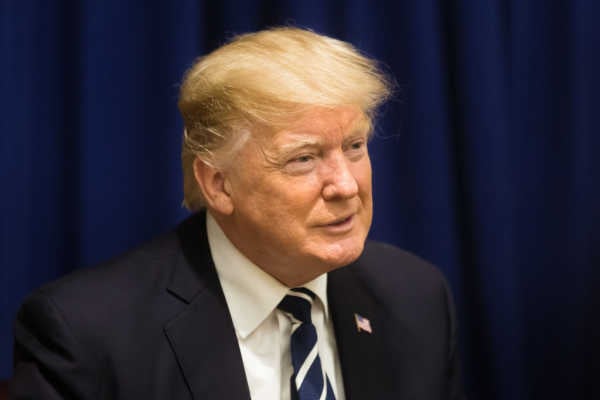The former president’s legal team has characterized the latest case as an attack on his right to free speech.
By Associated Press
Donald Trump pleaded not guilty Thursday to trying to overturn the results of his 2020 presidential election loss, answering for the first time to federal charges that accuse him of orchestrating a brazen and ultimately failed attempt to block the peaceful transfer of presidential power.
Trump appeared before a magistrate judge in Washington’s federal courthouse two days after being indicted on four felony counts by Justice Department special counsel Jack Smith. The charges accuse him of trying to subvert the will of voters and undo his election loss in the days before Jan. 6, 2021, when supporters stormed the U.S. Capitol in a violent and bloody clash with law enforcement.
Trump, the 2024 Republican presidential primary front-runner, is facing charges including conspiracy to defraud the United States and obstruct Congress’ certification of Democrat Joe Biden’s victory. His appearance Thursday, and the rest of the court case, will unfold in a courthouse blocks in clear view of the Capitol and in a building where more than 1,000 of the Capitol rioters have been charged.
Trump has said he is innocent, and his legal team has characterized the latest case as an attack on his right to free speech. The case is part of an ongoing set of escalating legal troubles for the ex-president, coming nearly two months after Trump pleaded not guilty to dozens of federal felony counts accusing him of hoarding classified documents and thwarting government efforts to retrieve them.
Smith himself was in the courtroom and sat in the front row behind the prosecutors handling the case. Three police officers who defended the Capitol that day were also seen entering the courthouse.
The indictment from Justice Department special counsel Jack Smith charges Trump with four felony counts related to his efforts to undo his presidential election loss, including conspiracy to defraud the U.S. government and conspiracy to obstruct an official proceeding. The charges could lead to a yearslong prison sentence in the event of a conviction.
The former president was the only person charged in the case, though prosecutors referenced six unnamed co-conspirators, mostly lawyers, they say he plotted with, including in a scheme to enlist fake electors in seven battleground states won by Biden to submit false certificates to the federal government.
The indictment chronicles how Trump and his Republican allies, in what Smith described as an attack on a “bedrock function of the U.S. government,” repeatedly lied about the results in the two months after he lost the election and pressured his vice president, Mike Pence, and state election officials to take action to help him cling to power.
This is the third criminal case brought against Trump in less than six months.
He was charged in New York with falsifying business records in connection with a hush money payment to a porn actor during the 2016 presidential campaign. Smith’s office also has charged him with 40 felony counts in Florida, accusing him of illegally retaining classified documents at his Palm Beach estate, Mar-a-Lago, and refusing government demands to give them back. He has pleaded not guilty in both those cases, which are set for trial next year.
And prosecutors in Fulton County, Georgia, are expected in coming weeks to announce charging decisions in an investigation into efforts to subvert election results in that state.
Trump’s lawyer John Lauro has asserted in television interviews that Trump’s actions were protected by the First Amendment right to free speech and that he relied on the advice of lawyers. Trump has claimed without evidence that Smith’s team is trying to interfere with the 2024 presidential election.





